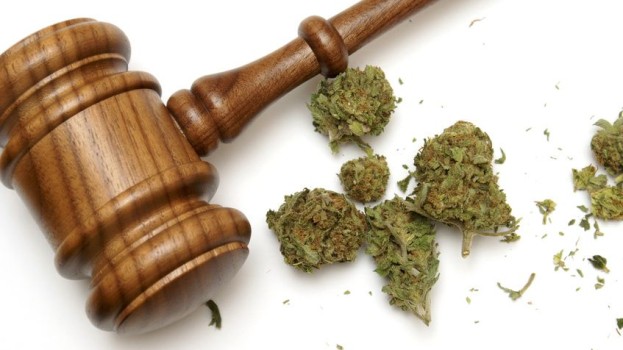Marijuana Laws in California – The Facts
California Cannabis Laws
Marijuana laws in California span from state level statutes to municipal ordinances and regulations. California decriminalized the possession of 28.5 grams (1 ounce) or less of marijuana. H&S Code 11357b labels simple possession as an infraction; such non-criminal offenses are punishable by a fine not to exceed $100. Possession of more than an ounce qualifies as a misdemeanor, so offenders are subject to up to six months in jail along with a $500 fine. Penalties associated with possession of concentrated cannabis reflect a sense of increased severity. H&S Code 11357a designates possession of any amount of concentrated cannabis as either a felony or a misdemeanor. The actual charge is subject to prosecutorial and/or judicial discretion. The accused may be eligible for a drug diversion or rehabilitation program in lieu of imprisonment under Proposition 36 or Penal Code 1000. Cannabis cultivation is a felony regardless of the amount, although those growing for their personal use may also seek solace in substance abuse treatment via PC 1000.
[box type=”warning” align=”alignleft” ]California law designates possession with intent to sell as a felony punishable by imprisonment in a state facility.[/box]While H&S Code 11359 does not specify an amount, police consider larger quantities of cannabis, product packaging. scales, etc. as evidence of nefarious activity. More sophisticated ventures involving mass distribution, transportation, and commercial sale of marijuana fall under H&S Code 11360. The law explicitly states that such crimes yield a prison sentence, unless the amount in question weighs no more than 28.5 grams. Instances involving an ounce or less are considered misdemeanors. It is important to note that H&S Code 11359 and 11360 include provisions for transactions in which no currency changes hands. In other words, giving marijuana away as a gift still violates the law.
Drivers under the influence of marijuana may be subject to a DUI according to Vehicle Code 23152. Officers look for signs of impairment, and administer a field sobriety test to confirm intoxication. The mere presence of an ounce or less of marijuana inside a vehicle constitutes an infraction. Vehicles are subject to forfeiture only when they contain 10 or more lbs.of marijuana.
California Medical Marijuana Laws
California’s reputation as a marijuana-friendly state stems from its groundbreaking medical marijuana policies . Proposition 215 (H&S Code 11362.5) amends existing law to shield medical cannabis patients as well as their primary caregivers from criminal penalties for possessing or cultivating their medicine. In this respect, Proposition 215 grants immunities so long as the associated conduct does not harm others. Senate Bill 420 (H&S Code 11362.7-11362.83) establishes the voluntary patient identification card program along with additional guidelines to substantiate issues within previous legislation. SB 420 limits patient cultivation to 6 mature or 12 immature marijuana plants per person; this aspect of the law remains on the books despite more lenient local measures. Thus far, no state level statutes deal directly with dispensaries or medical cannabis collectives. Attorney General Brown issued a series of guidelines with respect to the matter, but such statements do not carry the force of law. Numerous municipal ordinances exist to regulate or simply ban so-called storefront dispensaries.
About Katherine Tattersfield
Humboldt Relief Photographer/Webmaster since 7/2010. Katherine is a professional copywriter responsible for all of the content, including photography, graphics, and text, on the HR website unless otherwise specified. She also handles HR's social communities. She earned her B.A. in Political Science from California State University, Northridge, and works at PrintFirm.com when she's not volunteering for HR. Connect with her on:
Related posts
-
What is a Medical Marijuana Doctor by ...
June 11, 2013
-
Faded Fridays – What would you do ...
June 7, 2013
-
Ex-Microsoft exec plans to build the ‘Starbucks’ ...
June 3, 2013
-
Assembly bill in California to regulate medical ...
June 2, 2013











